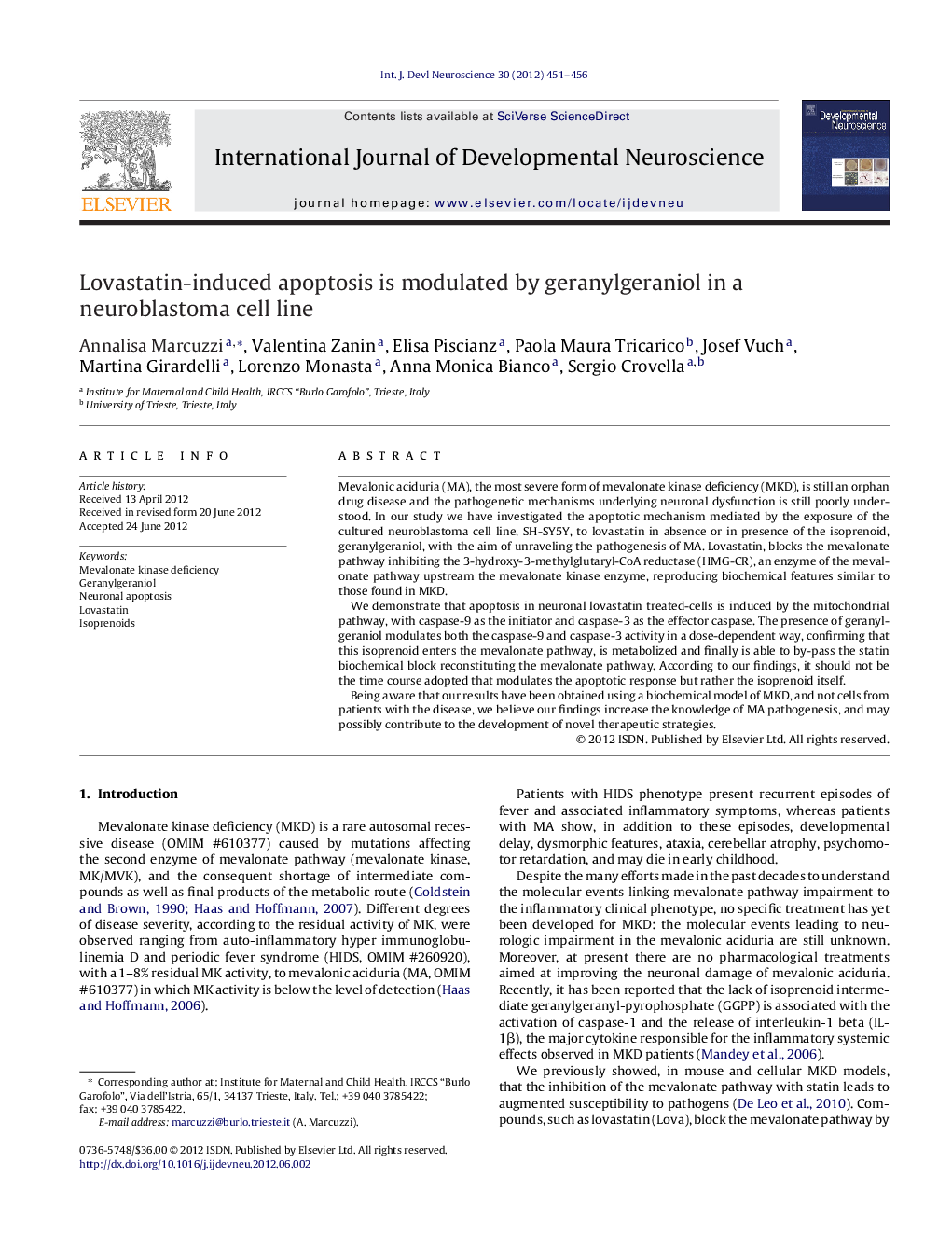| Article ID | Journal | Published Year | Pages | File Type |
|---|---|---|---|---|
| 2786214 | International Journal of Developmental Neuroscience | 2012 | 6 Pages |
Mevalonic aciduria (MA), the most severe form of mevalonate kinase deficiency (MKD), is still an orphan drug disease and the pathogenetic mechanisms underlying neuronal dysfunction is still poorly understood. In our study we have investigated the apoptotic mechanism mediated by the exposure of the cultured neuroblastoma cell line, SH-SY5Y, to lovastatin in absence or in presence of the isoprenoid, geranylgeraniol, with the aim of unraveling the pathogenesis of MA. Lovastatin, blocks the mevalonate pathway inhibiting the 3-hydroxy-3-methylglutaryl-CoA reductase (HMG-CR), an enzyme of the mevalonate pathway upstream the mevalonate kinase enzyme, reproducing biochemical features similar to those found in MKD.We demonstrate that apoptosis in neuronal lovastatin treated-cells is induced by the mitochondrial pathway, with caspase-9 as the initiator and caspase-3 as the effector caspase. The presence of geranylgeraniol modulates both the caspase-9 and caspase-3 activity in a dose-dependent way, confirming that this isoprenoid enters the mevalonate pathway, is metabolized and finally is able to by-pass the statin biochemical block reconstituting the mevalonate pathway. According to our findings, it should not be the time course adopted that modulates the apoptotic response but rather the isoprenoid itself.Being aware that our results have been obtained using a biochemical model of MKD, and not cells from patients with the disease, we believe our findings increase the knowledge of MA pathogenesis, and may possibly contribute to the development of novel therapeutic strategies.
► Lovastatin induces incremental programmed cell death in the neuroblastoma cell line. ► High concentrations of GGOH reduce programmed cell death in lovastatin treated cells. ► Lovastatin treated cells increase caspase-3 and caspase-9 activity.
